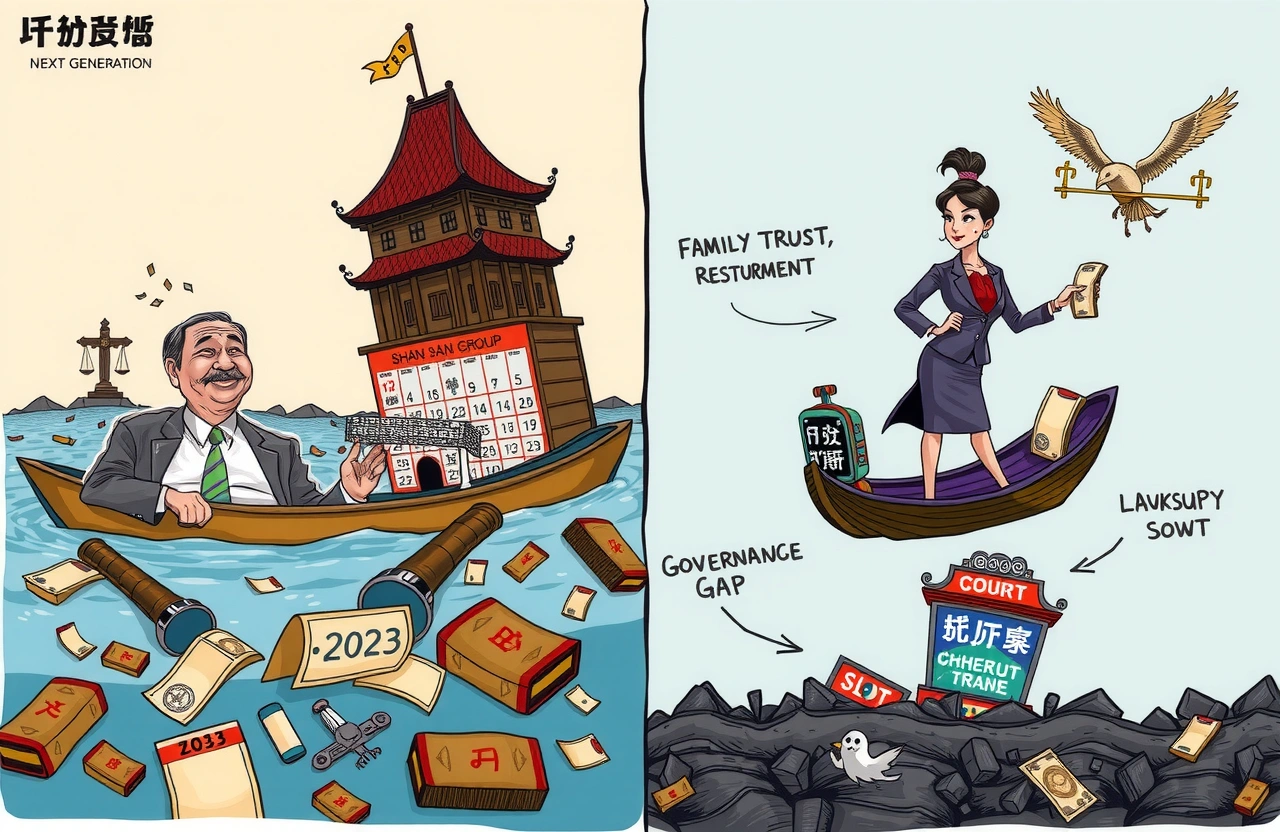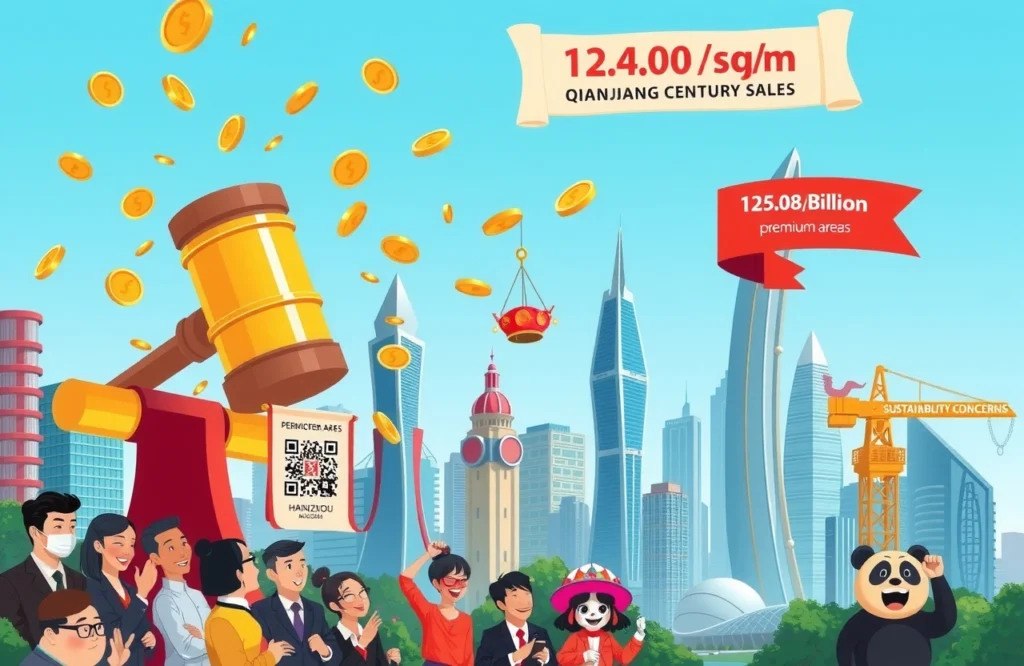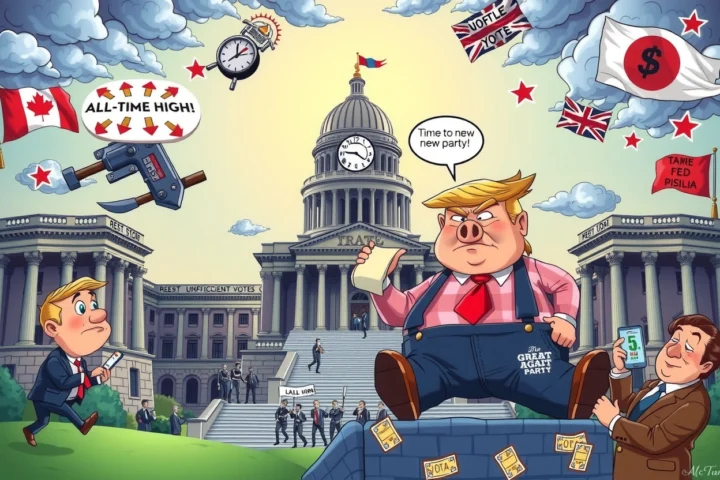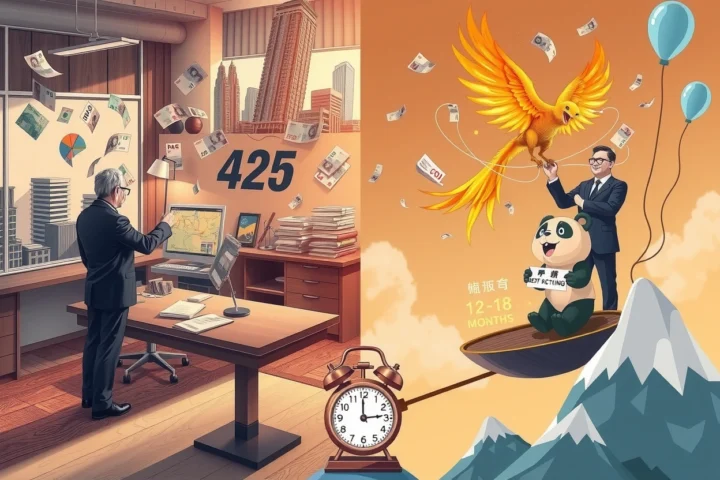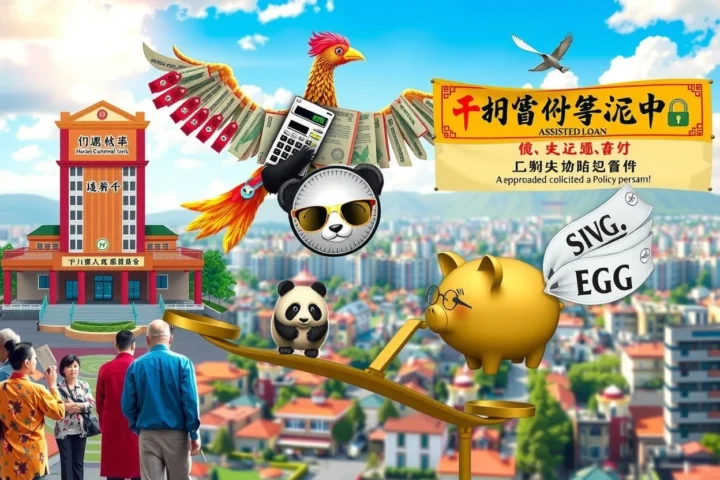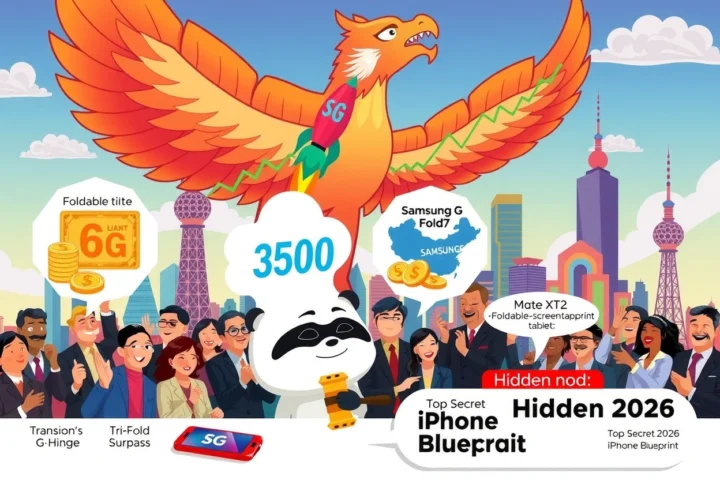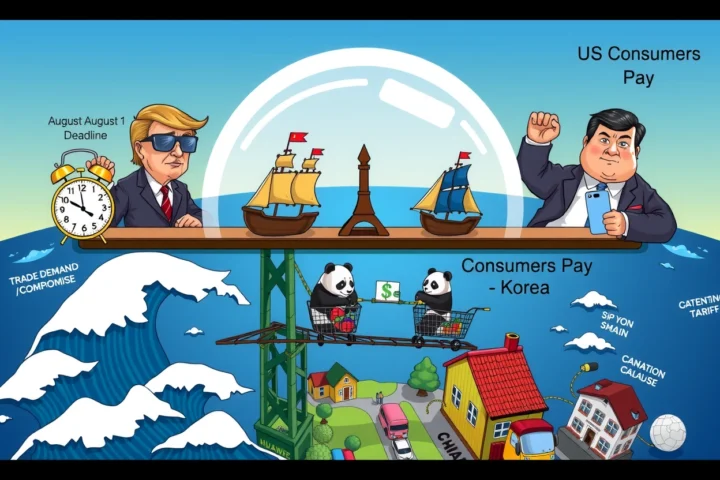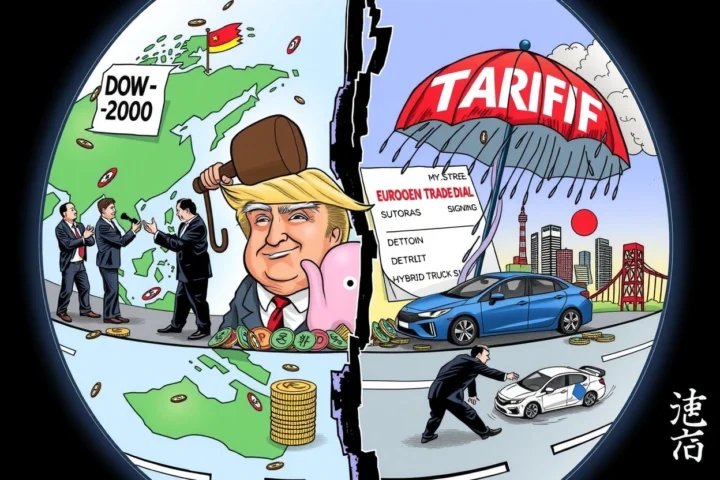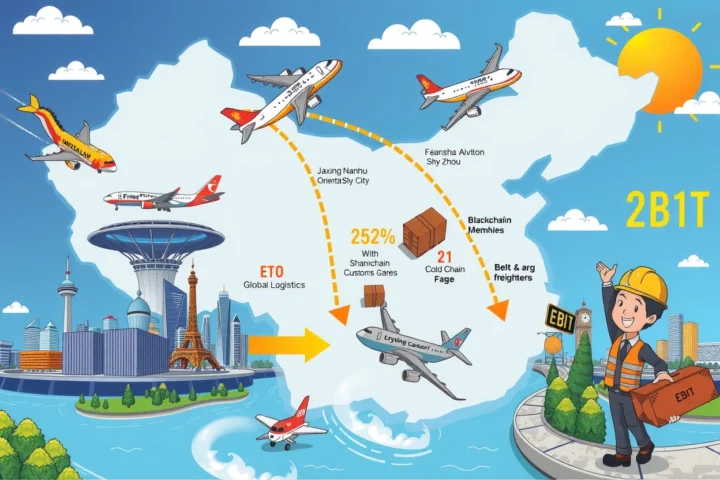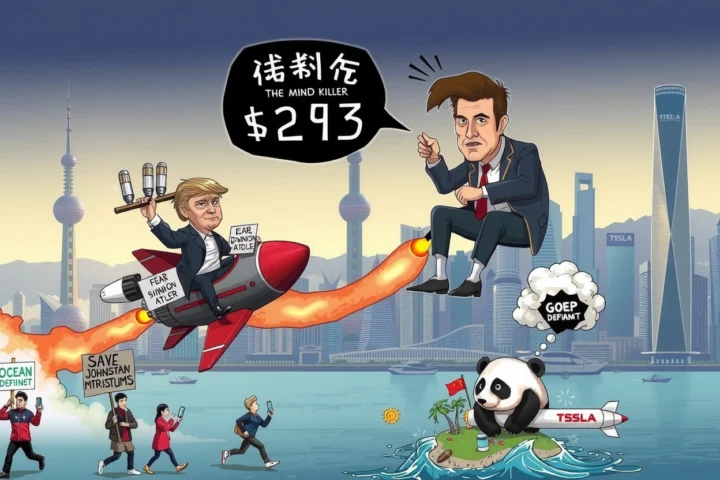– Shan Shan Group collapsed from ¥66B valuation to bankruptcy proceedings after founder Zheng Yonggang’s sudden death ignited succession wars
– Zheng Ju (郑驹), the designated heir, lost all equity through forced sales and became legally blacklisted as debtor
– Stepmother Zhou Ting (周婷) won control battle but inherited crippling debts, lawsuits, and plummeting share prices
– Critical governance failures & expansion strategies triggered downfall despite profitable history
– Bankruptcy restructuring now represents final survival hope for China’s fallen corporate giant
No corporate empire crumbles overnight. When Shan Shan Group founder Zheng Yonggang (郑永刚) suffered a fatal cardiac arrest on February 10, 2023, the ¥66 billion ($9B) conglomerate stood at industry pinnacles. Holding dual-leadership positions in lithium batteries and optical films with coveted market dominance suddenly meant little against generational time bombs. His unwritten succession plans ignited a combustible conflict between heirs – unleashing courtroom battles, asset seizures, creditor sieges, and ultimately China’s most spectacular corporate disintegration in recent history. As bankruptcy courts now determine whether Shan Shan can reassemble from ruins, this saga exposes lethal flaws brewing beneath family business triumphalism.
The Death Catalyst: Governance Gaps Exposed
Zheng Yonggang’s Sudden Death and Unprepared Dynasty
Zheng Yonggang (郑永刚) built Shan Shan methodically for 34 years, pioneering China’s apparel manufacturing shift into high-tech materials dominance. He cultivated a public persona as visionary empire-builder, telling journalists: “Our company belongs to family stewardship.” Yet his abrupt passing revealed stunning governance voids behind prosperity. Without any estate documentation nor legally-binding leadership transition provisions, Zheng left five children across marriages competing for corporate crowns simultaneously. Handwritten notes suggested he intended son Zheng Ju (郑驹) as successor given public declaration: “Business flows through bloodlines – this will be my son’s legacy.” Unfortunately, Zheng Ju faced fierce challenge from stepmother Zhou Ting (周婷) – guardian for Zheng’s three youngest heirs.
Multiple Successors, Zero Safeguards
Corporate stewardship dissolved immediately when stakeholders discovered:
– Absence of shareholder agreements restricting control disputes
– No binding family council oversight structures
– Directors deferred succession questions as “private family matters” rather than corporate necessities
– Failure establishing trust mechanisms shielding operating companies from inheritance uncertainties
Crucially, Zheng Ju lacked institutional protections directors typically grant proclaimed heirs despite Zheng Yonggang vocalizing intentions.
The Power Struggle Escalation
Shattered Peace: The Two-Center Leadership War
Temporarily diffusing hostilities required courtroom interventions later described as fragile truces ignoring deeper fissures:
The Interim Compromise Attempt
2023’s “stability solution” divided control superficially:
– Zheng Ju retained chairman role
– Zhou Ting entered boardrooms
– Minor children’s inheritance claims guaranteed
However, neither faction accepted status-quo legitimacy
Stepmother’s Offensive Moves
Skilled media communicator Zhou Ting (周婷) weaponized her public platform:
– Alleged shareholder meeting procedural breaches
– Petitioned courts freezing crucial ownership pathways
– Leveraged minor children’s legal rights immobilizing assets
By November 2024 she orchestrated Zheng Ju’s resignation:
“Today marks succession completion,” Zhou emailed employees
Collateral Damage: Obliterated Inheritance
Zheng Ju’s Financial Freefall
Court records detail Zheng Ju’s spectacular downfall:
– June 2025: Forced liquidation selling 1.81M Shan Shan shares
– Public debt-labeling (‘laolai’) despite ¥277M repayment capability
– Travel restrictions freezing business mobility
His inheritance annihilation rendered Zheng Ju commercially neutered.
The Poisoned Inheritance: What Zhou Ting Inherited
Victory delivered Zhou Ting ruin:
• Financial hemorrhages: Shan Shan posted 2024’s unprecedented ¥367M net loss
• Liquidity paralysis: Cash reserves covered barely 1 month liabilities
• Subsidiary collapses: Listed holding Yongshan Lithium Securities evaporated overnight
• Creditor armies: Over ¥20B demanded repayment
• Investor abandonment: Key institutions offloaded holdings
By inheritance day Shan Shan held negative enterprise value.
Systemic Roots: Why Governance Failed
The Expansion Trap
Shan Shan’s diversification obsession sowed three key vulnerabilities:
1. Sector volatility exposure
2. Cashflow deficits despite profitability
3. Operational integration failures
Financial statements revealed hollow prosperity:
| Year | Reported Net Income | Actual Operating Cashflow |
|---|---|---|
| 2021 | ¥3.34B | ¥-364M |
| 2022 | ¥2.69B | ¥-506M |
Profits existed statically without sustainable circulation.
The Missing Succession Architecture
Legal experts identify fatal structural omissions:
– No family constitution binding heirs
– Legacy intentions uncodified
– Board independence surrendered
Succession wasn’t scheduled—context decided outcomes.
Beijing Dacheng law partner Xue Jing explains: “Family enterprise collapses originate not during fights, but by delaying governance frameworks decade previous.”
The Human Cost Behind Corporate Ruin
Zhou Ting’s Burden Curve
Transitioning guaranteed burden:
– Abandoned broadcast career (formerly Shanghai Media anchor)
– Business governance learning acceleration
– Public transformation towards “tough administrator” persona
Yet Zhou’s February 2027 court appearance crackled desperation: “We’re fighting endlessly.”
Zheng Ju’s Vanished Future
Securities filings trace Zheng Ju’s extinction:
– Yearly shareholdings decline
– Board resignations
– Debt lawsuits multiplying
As family unperson, Zheng Ju exists functionally bankrupt.
Broader Business Warning Echoes
China’s Family Enterprise Danger Cycle
Shan Shan’s trajectory mirrors systemic challenges:
– First-generation founders dominating 1978–2015
– Second generations’ unpreparedness
– Third-generation chaos emerging
Industry data shows:
– <70% family-owned businesses survive founders
– >60% experiencing destructive inheritance disputes
– Slowly growing estate-planning adoption
Jin Yong lawyer observes: “Restructuring represents necessary corporate surgery finally tackling delayed problems.”
The Last Chance: Bankruptcy Restructuring Path
The Mechanics of Corporate Resurrection
Ningbo Courts initiated reorganization providing:
• Creditor negotiations shelter
• Operations continuity
• Debt-to-equity conversions
• Investor recruitment
Success chances pivot Zhou Ting convincing parties to:
1. Forgive portions using collateral
2. Exchange debt for future cashflow
3. Accept gradual payments
Any deadlock triggers dissolution.
The Zhejiang Business Circle Lifeline?
Financial salvation now requires extraordinary interventions:
– Former Zheng Yonggang allies like Fosun’s Guo Guangchang
– Geely Chairman Li Shufu
– Jack Ma’s Ant Group partnership
Mobilizing Zheng’s dense Zhejiang province business network represents final survival card.
Survivor phenomena prevail where preparation precedes crises. Shan Shan’s carcass reminds corporate China daily maturation needs surpassing momentary expansions – embedding robust controls, codified transitions, and consequence planning stabilizing empires across generations. For existing family enterprises: Schedule attorney consultations concluding succession documentation. For regulators: Note policy gaps permitting billion-dollar fractures purely from neglected governance basics. Financial reconstruction may relieve Shan Shan’s debts temporarily, but institutionalizing orderly leadership transfers permanently prevents tomorrow’s catastrophes.


